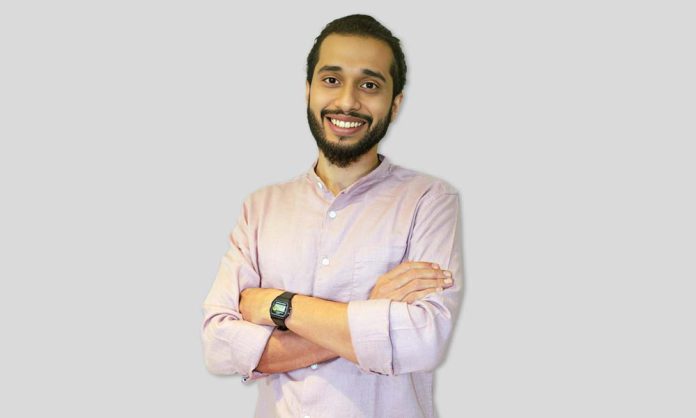Global CEO Magazine recently had the opportunity to sit down with Mr Sanket Audhi, Creative Director at Talented, India’s fastest-growing creative agency.
In a conversation led by Dr Dilhan S. Jayatilleke, the Senior Vice President of Sri Lanka Institute of Marketing, Sanket shared his insights on the evolving landscape of branding in Sri Lanka and South Asia, the impact of technology on creativity, and how legacy and new-age brands are shaping the future of marketing.
As a keynote speaker at Brand Week 2025, organised by the Sri Lanka Institute of Marketing (SLIM), Sanket also reflected on the passion and collaborative spirit of Sri Lankan marketers.
In this exclusive interview, Sanket discusses emerging trends, the role of AI-driven marketing, and the importance of bold creativity in building standout brands.
Global CEO: Hello, everyone. Welcome to Global CEO Magazine. Today, we have with us Sanket Audhi, Creative Director at Talented, India’s fastest-growing creative agency.
Global CEO: How’s your stay in Sri Lanka been so far?
Sanket: It started off on a great note! I always thought Indian hospitality was the best in the world—until I arrived in Sri Lanka this morning. The welcome I received was absolutely one of a kind. So, thank you all for that.
Global CEO: That’s wonderful to hear! Sri Lanka is indeed known for its hospitality.
Sanket is here with us today to talk about branding. He is a creative visionary shaping numerous brands across the region.
Sanket, let’s get straight to it—what are your thoughts on the future of branding in the region?
Sanket: Oh, 2025 is an incredibly exciting time for branding. There’s a strong balance between legacy brands and new-age brands. The latter are taking more risks and being bold with their marketing strategies. This, in turn, is pushing established brands to stay competitive.
Legacy brands can no longer afford to be complacent just because they’ve been around for 80 to 100 years. Instead, they are adapting, evolving, and even trying to “break the internet” with innovative campaigns. The real magic happens when a well-established brand decides to take creative risks like a challenger brand.
So, I’d say we’re seeing a healthy mix of heritage and modernity, with both types of brands striving to stay ahead.
Global CEO: That’s fascinating. At the same time, creativity plays a vital role in brand success. How do you see creativity shaping brands?
Sanket: Creativity has countless applications—for purpose-driven campaigns, social good, and of course, commercial success. At the end of the day, marketing is about capitalism, and creativity plays a huge role in making a brand stand out.
With AI-driven automation taking over many aspects of marketing, things can sometimes start to sound like white noise. That’s where creativity becomes a game-changer—it helps brands differentiate themselves in an increasingly cluttered market.
Global CEO: India is a leader in technological innovation, and that has a huge impact on branding. How do you see technology shaping the future of brands?
Sanket: That’s a great question. Technology never takes a break—it’s constantly evolving and pushing boundaries. The real challenge lies with marketers, agencies, and creative professionals: how can we use technology more effectively?
Gone are the days of churning out generic Facebook and LinkedIn posts or simply producing 30 reels a month. Now, it’s all about sharp, brand-specific, and highly effective marketing. Marketers must focus on ROI and campaign effectiveness, and creative professionals need to find innovative ways to leverage technology in branding.
Global CEO: You’re in Sri Lanka for Brand Week, organised by the Sri Lanka Institute of Marketing (SLIM). As an Indian creative leader speaking to Sri Lankan marketers, how do you see Sri Lanka’s branding future and its relationship with India’s marketing advancements?
Sanket: First of all, kudos to SLIM for running Brand Week for the fifth consecutive year! It’s proof of how passionate Sri Lankans are about marketing.
I’ve had the chance to interact with many participants and guests, and their enthusiasm for collaboration is inspiring. In India, we sometimes have what I call the “crab mentality”—when something good happens to someone, people question it rather than celebrate it. I haven’t seen that here in Sri Lanka, which is refreshing.
As for Sri Lanka’s branding future, I see huge potential. India and Sri Lanka share cultural similarities, making it easier to exchange ideas and strategies. This makes conversations with Sri Lankan marketers very natural—I don’t have to learn new lingo or concepts to understand the market.
The Brand Week organising team has also been incredibly warm and welcoming, making this an amasing experience.
Global CEO: That’s great to hear! Thank you, Sanket, for sharing your insights with us. It has been a pleasure having you here.
Sanket: Thank you! A big congratulations and thank you to SLIM for hosting Brand Week, and to Global CEO Magazine for inspiring excellence in marketing. See you all at Brand Week 2026!


